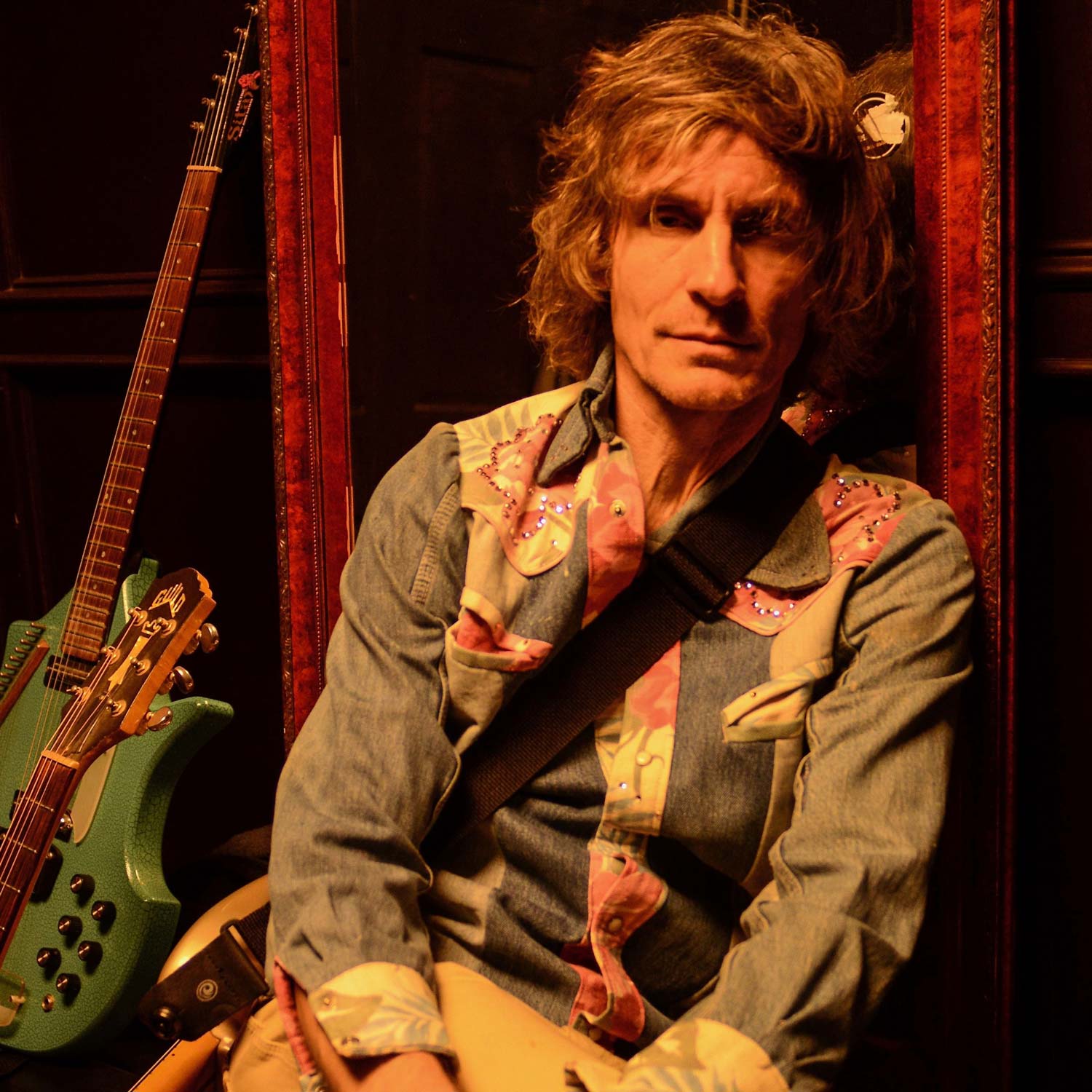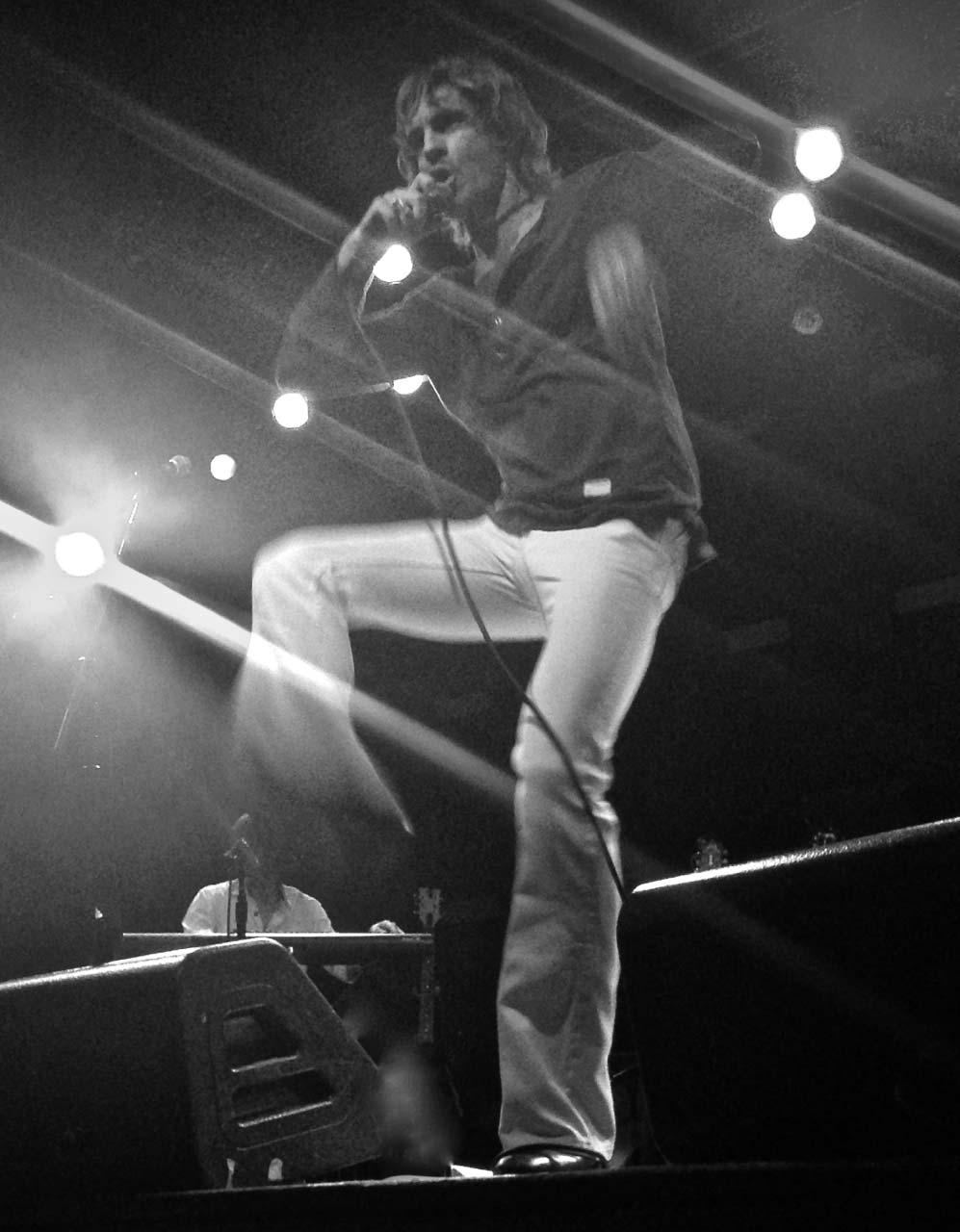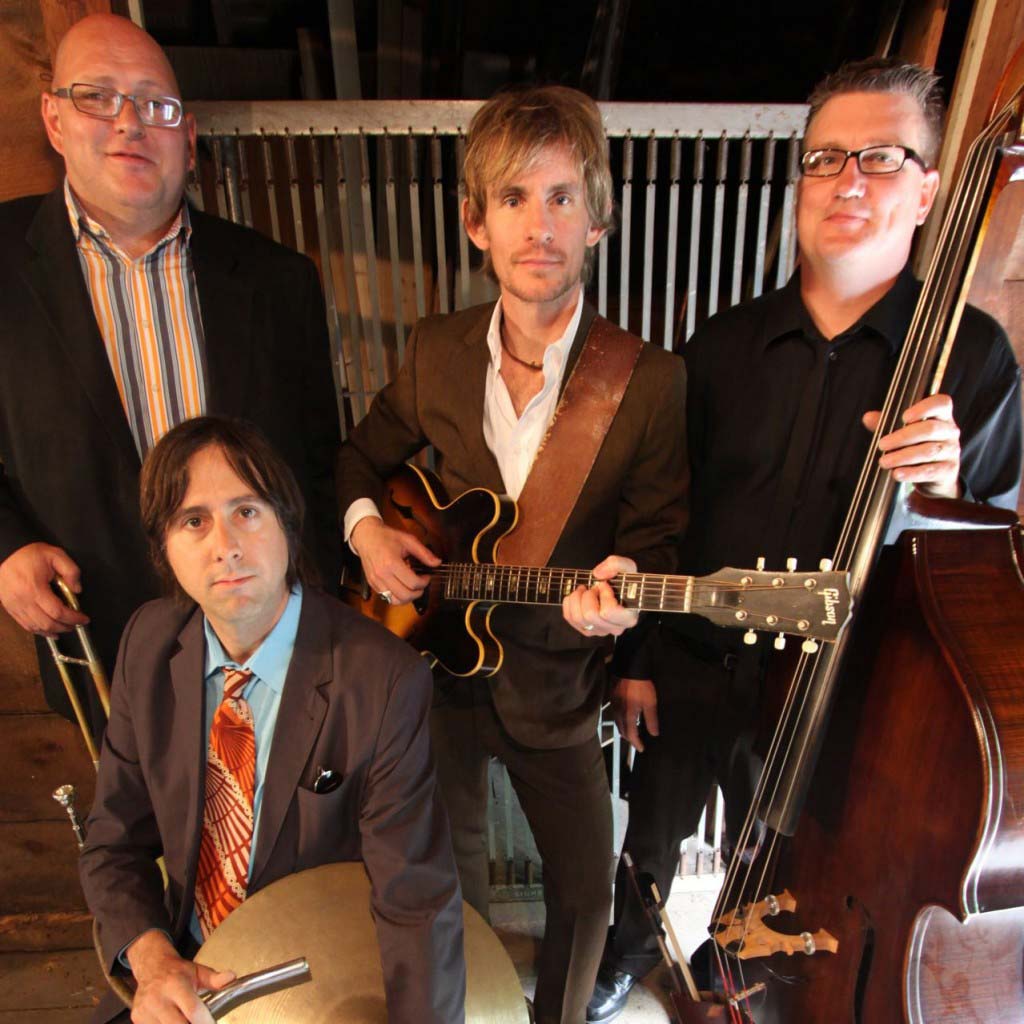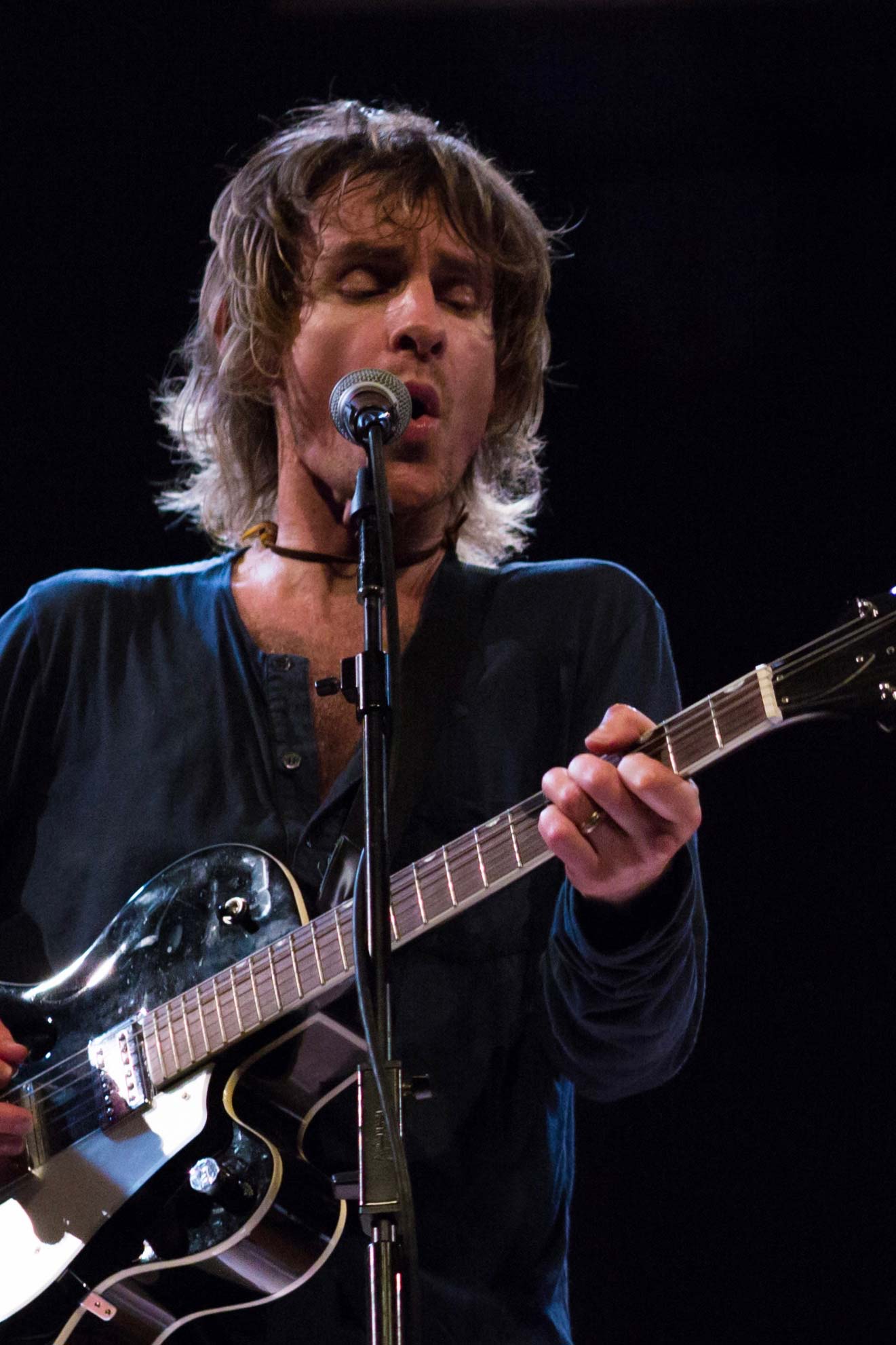Short Bio
Willie Wisely is that rare bird, mixing outsized stadium-rock showmanship with songs so lyrical, personal and true, you’ll leave the show feeling like you’ve got a new best friend. He is among the most distinctive songwriters of his generation, with decades of indie touring that season every note. He’s made several jaunts to Japan, gigged in the UK, France and across Canada; recorded eight studio albums, and released an even deeper well of side projects and curio albums.
As befitting a songwriter, Wisely resided for decades in Laurel Canyon, Los Angeles’ musician refuge; playing gigs, co-writing, composing indie film scores and even occasionally crawling down the hill to Hollywood for unexpected appearances acting in TV, theater and in films you’ve likely seen. In 2018, he returned to his native Twin Cities, to give yet more time to his music and family, and to again be a part of one of the country’s most celebrated and richly artistic scenes: Minneapolis.
In his four decades of music making and crowd play, Wisely has followed many muses, including that of the eternal clothes horse and LP crate digger. The interior walls of his home are warmed by the fashionable textiles, zipper boots and vinyl LP stacks of era’s gone by. And his latest studio album “Face The Sun” feels it all. Produced by John Fields (who crafted Wisely’s career-launching 90’s albums “She” and “Turbosherbet”), the album includes Willie’s snappiest pop songs, along side his deepest bows ever to the 70’s balladry of Harry Nilsson and Eric Carmen, notably in the track “I Can’t Sleep”. Also, don’t miss the album’s sensual wisely-chosen cover, “Fall Inside Your Eyes,” long Willie’s favorite 60’s obscurity by the little know Beatles acolyte Jackie Lomax.
Willie and fellow Minneapolitan Kristin Mooney founded an “acoustronic” studio project, with platinum-selling producer John Fields. Together they’ve released a mysterious string of singles that tend toward the unclassifiable.
Wisely has also played the producer, notably for the young Mark Foster (Foster The People), comedian Andy Dick (albums The Darkest Day Of The Year, Do Your Shows Always Suck), and educator Michael Ryther for his soundtrack to save the earth by “Kids Of The Earth.”
Beyond his recording artist career, Wisely has enjoyed working behind the scenes in the music industry, including a six year stint as Head Of Promotions at Minneapolis’ legendary venue First Avenue; as composer for a number of films, notable working with director James Gunn (Guardians Of The Galaxy) on his indie film scores.
Currently, Wisely works in Business Development and acquisitions at Concord, where he has been an instrumental in the company’s astronomical growth. Among his many roles at the company, he spent several years on the team managing the estates of Billie Holiday and Tammy Wynette.
Long Bio
In 1986, after leaving Beloit College and finding a job at the Wax Museum record store in Dinkytown, a university neighborhood in Minneapolis, Willie Wisely began a quest to understand and appreciate jazz. Previously, only the Beatles had really impressed him; and he was let down by most the music of the 1980’s. So without a muse Willie turned to history for inspiration.
In 1987 while attending what would become McNally Smith College of Music in Minneapolis Willie met bassist James Voss. They’d signed on for the performance degree programs to explode their skills. Despite being a good songwriter, Willie kind of sucked on guitar and felt the need to improve. Unfortunately, studying scales and modes, and going to class with 50 shredding metal heads, all playing at the speed of light, made Wisely so self conscious that he unimproved his skills (temporarily). It didn’t really matter because he was an entertainer, a singer and a writer at heart. The Yngwie Malmsteen licks were best left to classmates.
Voss had a notion that they form a band fusing birth-of-cool jazz, gut-bucket Chess blues and add a twist, like a clarinet player. James was a versatile musician, and played in scads of ‘jobber’ groups across many styles. From his network he met Peter Anderson, a swinging Mitch Mitchell-style drummer with an appreciation for groups as varied as the frenetic Babes In Toyland, to the placid The Carpenters. Peter also loved Neil Young, free-jazz virtuoso Albert Ayler and Captain Beefheart. So now, The Trio was complete.
James played a dilapidated upright bass, freshly nicked from a school band department. Peter, taking cues from John Bonham and Tony Williams, syncopated the music with ingenuity. And then there’s Willie, trying so hard to be his heroes Paul McCartney and Mahalia Jackson, and almost always failing spectacularly. But, failure being the breeding ground of innovation, charmed local critics and driving sales of many home-crafted cassette releases. By April 1990, the band would be featured in a cover story for The City Pages weekly––Minneapolis’ Village Voice.
In November 1989 the Trio was playing at a smoky little bar in Minneapolis (yes kids, once upon a time you could smoke indoors!). Greg Wold, co-owner of the joint and gonzo trombonist, first set eyes upon the group there. He been playing in the periphery of the Twin Cities jazz scene, but had a proclivity for inviting chaos onto stage and drama to every band. He could make the slide trombone wheeze like a steam engine or squeal like a pterosaur. After a few glasses of scotch (one for everyone in the band) he would invite himself onto stage, always proclaiming; “You are three of the most attractive young musicians I’ve ever seen.” For the next three years, Greg was the crowning touch as the group became bolder and more freaky circus-like.
By April 1990, the band would be featured in a cover story for The City Pages weekly––Minneapolis’ Village Voice.
In early 1992, now with a loyal regional audience, the Trio released their first album titled Raincan––their homage to the wild abandon of Captain Beefheart, which was not entirely out of context as bands like Butthole Surfers and Squirrel Nut Zippers toured the nation in the same circuits. The disk generated booking opportunities across the country, with memorable opening slots for Violent Femmes, Dr. John, Aztec Camera, Trip Shakespeare, Brian Setzer Orchestra, Jr. Wells & Ronald Shannon Jackson among others. The fact that all these bookings made good musical sense was a testament to the Trio’s omnivorous musical hungers. Invitations to perform at the nascent South By Southwest Music Conference in Austin, TX came next, stirring activity on the regional CMJ radio charts.
One reviewer who drank the Kool-Aid said, “If stripped naked the group would still be wearing Willie’s songs. Wisely composes like a theater director. Scene One: two lovers who don’t speak the same language. The curtain rises… the song is half-rhymed in French, played to an oozy, 1960’s TV commercial bossa nova funk. Scene Two: man comprehends the scope of his lustful desires and warns the lady to BEWARE. The curtain rises…. eight minutes of screaming guitar feedback sunk to the seething six-eight pulse of the most hideous of Hammond organ tones. Amazingly though, each song is just as effective if sung by Willie with an acoustic guitar. Indeed the Wiselys are a rare band, one that is compelled by their musical frontiers and not held captive by them.”
From 1991 to 1993, the Trio toured like a UPS truck, playing endlessly in small clubs––their homemade cassettes and the Raincan CD stacking up rave reviews. Hundreds and hundreds of gigs, thousands of people and plenty of mischief later, the band needed new material. The result was Parlez-Vous Francais?, originally released on Chicago’s Pravda Records in 1994. The sessions were emotionally frayed, as members became disenchanted with endless roadwork. James moved to Christie, WI (population 27) and started a family and hair salon. Peter co-founded his own group Saucer, and Greg well, he had a career in record production and eventually advertising in mind. Things became disjointed, burning out various teams of engineer/producer teams, resulting in piles of unreleased songs and steeling Wisely’s confidence about the band and the album.
Whether you’re reminded of Mahalia Jackson “Moving On Up a Little Higher,” or Ray Charles proclaiming “I Believe To My Soul,” Rod Stewart coaxing a stadium to sing along to “Maggie May,” or Neil Young & Crazy Horse delivering an epic Rust guitar solos, it’s always more Willie than anything else. But that hasn’t stopped comparisons. The group has been referred to as a “troupe of minstrels gallivanting,” “Sinatra on crack,” “Jazz-tinged bards” and “neo-burlesque.” One critic warned “David Lee Roth watch your back” while another imagined, “if Willie were to fart loudly you would no doubt feel inclined to utter an appreciative thank you.” The Willie Wisely Trio truly makes music in a different way.
In 1993, after touring through a treacherous blizzard in the Poconos Mountains, Greg would begin making a different noise––confessing he didn’t want to tour any longer. Losing him would be a challenge – but was compensated for by Willie having developed a new guitar style, done without a guitar pick. The Trio would commit to rocking harder and swinging less, still launching into great flights of improvisation, and never playing the same show twice. But still, demoralized, they toured for a year in support of Parlez-Vous Francais? but eventually broke up in the summer of 1995.
From 1996 through 2009 Wisely built a substantial solo career – releasing six more studio outings including 2006’s start-here album “Parador” (2006), touring the US and Japan, moving to Los Angeles, acting in film and TV, and producing records for other artists, including comedian Andy Dick. Wisely’s music after the Trio is often referred to as power pop. He was often compared to contemporaries like Ron Sexsmith, Elliot Smith, or elder statesmen such as Donovan, and Pauls Simon and McCartney.
By 2008, a label deal with Oglio/Fontana Wisely” (2007) and sprawling house concert tours with a wine sponsorship established Wisely as a contemporary singer-songwriter. Several star-studded music videos featuring actors Jenna Fischer, Alexander Gould and frequent collaborator Andy Dick, heightening a quiet, if national profile.
In 2009 tragedy struck. Gigs were cancelled, and recording projects were tabled. Wisely’s desire to write songs vaporized. He had developed an inexplicable hemangioma on his right vocal cord that distorted the singing voice and made it impossible to consistently sing with pitch.
Surgery in 2011 finally begin to solve the problem. With 40% of his voice returned by mid-year, Willie was reinvigorated enough to finish the passion-project he’d started in 2007 with the original Willie Wisely Trio. Adding final overdubs, even singing a bit, the band sculpted the recordings and culled some songs until there was a new album “True” (2012) worthy of their 18-year hiatus.
In Summer 2011, with the album complete, nearly a year after vocal surgery, the Trio played a spate of gigs around Minneapolis, whetting everyone’s appetite for more. The band was fearless as ever, making a great big noise unlike any other.
Frighteningly, “True” stared at Wisely, demanding to be performed. Yet there is uncertainty. “My voice will never be the same as it was. Most of the vocal tracks on “True” were recorded before things went to hell. I’m not sure how to handle some of the material live. It’ll be challenging and frightening to show people my new voice. I’ll have to trust that great art comes from puzzling situations.
The story doesn’t end there but continues with 2019’s “Face The Sun”, and a new album expected in 2026. More later.



